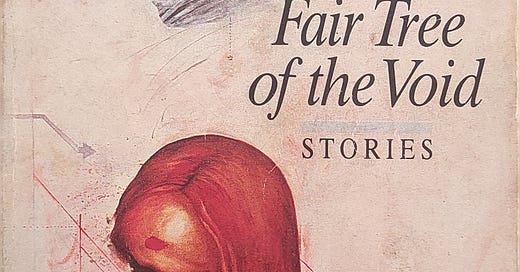Franz Kafka is the kind of writer who grips his readers firmly with his tentacles and denies them a way out. It's difficult for any of his ardent readers who pick up creative writing not to imitate his style, structure, or philosophy. That's why you find Kafkaesque inspirations and aspirations in any modern creative art form. Marquez has written that he became a writer after reading Kafka. In the writings of Murakami, you sense an obvious influence. He has written a short story titled 'Samsa in Love' as a tribute to 'The Metamorphosis'. Vilas Sarang is an Indian writer who flaunts an obvious Kafka affection in his twenty stories collected in the book 'Fair Tree of the Void'.
Sarang is a writer who writes in both Marathi and English. This book is a collection of stories that's translated from Marathi. The stories extrapolate Kafkaesque landscapes to urban India, where the stories' protagonists are trapped in labyrinths created in distinctly Indian settings. One could also find a clear influence of Albert Camus in the stories, as most of them explore the absurdities of modern life to which humans are so accustomed that they tend to ignore them.
The common theme that binds the stories is the image of a solitary man who is totally within himself. While he is compelled to march forward with his surroundings, there is an element within him that's indifferent and wants to confine himself within the four walls of a shabby room. His room is an important and often repeated motif in many of the stories. It's difficult to differentiate between his room and himself. Even when he chooses to venture outside, it looks like he's carrying it with him.
One important aspect of the writings of Kafka that is often overlooked is humour. It may be that, due to the implied profundity that his enthusiasts thrust upon his writings, people fail to identify the hilarity. Vilas Sarang uses the full potential of humour in these stories, and most of them are nothing short of laugh-out-loud funny. He uses it so finely that sometimes we never identify what hit us. There is a story titled 'Flies' in which the protagonist spends his entire day observing intently the flies that land on his bed. The last sentence of the story takes a twist that the reader never imagines while reading. The endings in most of his stories make us rethink carefully about the entire story again.
The actions and thoughts of these protagonists are essentially exaggerations of many absurd things that we all think or do while alone. The writer uses them to demonstrate how the larger society also functions in the same way, which isn't visible to us from our perspective. As readers, we are compelled to transfer the stories of these individuals into the workings of society and realise its absurdities.




